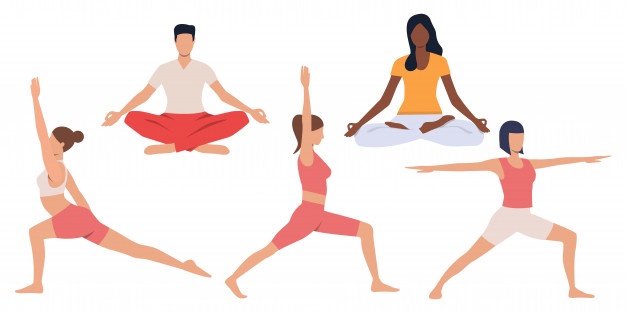Sleep is one of the most important pillars of a healthy lifestyle. In today’s fast-paced world, achieving a restorative night’s sleep can be challenging. Whether you struggle with occasional insomnia or simply want to boost your overall sleep quality, adopting proven strategies can make all the difference. In this comprehensive guide, we delve into actionable tips, backed by expert insights and credible external resources, that can help you fall asleep faster, stay asleep longer, and wake up feeling rejuvenated.
Quality sleep not only affects your physical health but also enhances your mental clarity, mood, and productivity. This guide addresses those needs by outlining simple yet effective methods to transform your sleep habits.

How To Improve Sleep Quality
Establishing a Consistent Sleep Schedule
One of the most critical steps to achieving better sleep quality is establishing a regular sleep schedule. A consistent bedtime routine helps regulate your body’s internal clock, also known as your circadian rhythm, and signals to your brain that it’s time to wind down.
Why a Regular Sleep Schedule Matters
A stable sleep schedule allows your body to transition into sleep mode naturally. When you go to bed and wake up at the same time every day—even on weekends—your body becomes accustomed to a routine, which can help reduce instances of insomnia and fragmented sleep. This approach has been widely endorsed by sleep experts and organizations like the National Sleep Foundation for its benefits in enhancing overall sleep quality.
Tips for Developing a Consistent Schedule
- Set a Fixed Bedtime and Wake-Up Time: Determine a bedtime that allows you to get 7-9 hours of sleep, which is the recommended duration for most adults. Stick to these times even on days off.
- Gradually Adjust Your Schedule: If your current sleep schedule is irregular, gradually shift your bedtime earlier or later in small increments until you achieve consistency.
- Avoid Napping Late in the Day: While short power naps can be beneficial, long or irregular naps can disrupt your nighttime sleep cycle.
- Create a Pre-Sleep Ritual: Engage in calming activities before bed—such as reading a book, meditating, or taking a warm bath—to help signal to your body that it’s time to sleep.
By committing to a consistent sleep schedule, you pave the way for more restorative sleep and better overall health.
Creating a Sleep-Inducing Atmosphere
The environment in which you sleep plays a significant role in how well you rest. Creating a sleep-inducing atmosphere involves optimizing your bedroom to promote relaxation and minimize distractions that can interrupt your sleep cycle.
Optimize Your Bedroom for Rest
Invest in Quality Bedding: A comfortable mattress and pillows can make a world of difference.
Control Lighting: Dimming the lights in the evening helps signal to your brain that bedtime is near. Consider using blackout curtains or an eye mask to block out early morning light.
Maintain a Cool Temperature: Most experts suggest keeping your bedroom at a cool temperature (around 60-67°F or 15-19°C) to facilitate a comfortable sleep environment.
Minimize Noise: Use earplugs or a white noise machine to drown out disruptive sounds. A quiet environment is crucial for achieving deep sleep.

Incorporate Calming Scents and Colors
The colors and scents in your bedroom can also affect your mood and ability to relax. Soft, neutral colors and the use of essential oils such as lavender or chamomile can create a soothing ambiance. Many sleep experts recommend aromatherapy as a natural sleep aid, and numerous studies support the calming effects of these scents.
By fine-tuning your sleep environment, you create a sanctuary that’s conducive to deep and uninterrupted sleep.
Sleep-Boosting Nutrition: Foods to Help You Sleep Better
What you eat can have a profound impact on your sleep. Certain foods and drinks contain nutrients that can help promote relaxation and prepare your body for a restful night.
Nutrients and Foods That Enhance Sleep
- Magnesium-Rich Foods: Magnesium plays a crucial role in supporting deep, restorative sleep by maintaining healthy levels of GABA, a neurotransmitter that promotes relaxation. Include foods like almonds, spinach, and pumpkin seeds in your diet.
- Tryptophan-Containing Foods: Tryptophan is an amino acid that your body uses to produce serotonin and melatonin, both of which are vital for regulating sleep. Turkey, bananas, and dairy products are excellent sources.
- Herbal Teas: Herbal teas, particularly those containing chamomile or valerian root, can have a calming effect and are popular as natural sleep aids. These teas are frequently highlighted in articles on sleep enhancement and are a staple for many looking to improve their sleep quality.
- Complex Carbohydrates: Foods such as whole grains and sweet potatoes release energy slowly and help keep your blood sugar stable throughout the night, reducing the chances of sleep disturbances.
Foods and Drinks to Avoid Before Bed
- Caffeine and Nicotine: Both are stimulants that can interfere with your ability to fall asleep. It’s advisable to avoid these at least 4-6 hours before bedtime.
- Heavy, Spicy Meals: Consuming large or spicy meals close to bedtime can lead to indigestion and disrupt your sleep.
- Sugary Snacks: High-sugar foods can cause energy spikes that make it harder for your body to wind down.
A balanced diet not only contributes to better sleep but also supports overall well-being. Integrating sleep-enhancing foods into your daily routine is a natural strategy to combat insomnia and improve sleep quality. You can read more about sleep-boosting nutrition on credible sites like Harvard Health Publishing.

Effective Exercises for Enhanced Sleep Quality
Physical activity is another cornerstone of a healthy sleep regimen. Regular exercise not only improves your overall health but also significantly enhances sleep quality.
The Role of Exercise in Sleep Improvement
Engaging in regular physical activity can help you fall asleep faster and enjoy deeper sleep cycles. Exercise reduces stress levels, promotes the release of endorphins, and can regulate your circadian rhythm. Whether you are dealing with mild sleep disturbances or chronic insomnia, incorporating exercise into your routine can have noticeable benefits.
Best Practices for Exercising to Improve Sleep
Include Relaxation Exercises: Low-intensity workouts like stretching or light yoga can also be effective. These activities not only help with physical fitness but also promote relaxation, making it easier to transition into sleep mode.
Timing Is Key: While exercise is beneficial, the timing of your workout is crucial. Aim to finish moderate to vigorous exercise at least 3 hours before bedtime. This allows your body to wind down and prevents the adrenaline rush from interfering with your sleep.
Incorporate Aerobic and Strength Training: Both aerobic activities (such as brisk walking, running, or cycling) and strength training contribute to overall health and better sleep. Mix up your routine to keep it interesting and to target different muscle groups.

How Regular Exercise Impacts Sleep
Numerous studies indicate that individuals who exercise regularly experience fewer sleep disturbances and report higher sleep quality. Exercise helps stabilize your mood and regulate sleep patterns by reducing anxiety and depression symptoms, common contributors to insomnia. For further insights on the link between exercise and sleep quality, consider reading research available on Mayo Clinic’s website.
Integrating regular physical activity into your daily routine, along with a healthy sleep schedule, can be transformative for your sleep quality and overall well-being.
Harnessing the Power of Yoga for Better Sleep

Yoga, an ancient practice known for its physical and mental benefits, is a powerful tool for enhancing sleep quality. Incorporating yoga into your nightly routine can reduce stress, alleviate anxiety, and create a sense of calm that is conducive to deep sleep.
The Science Behind Yoga and Sleep
Yoga combines gentle physical movements, breathing exercises, and meditation, all of which can significantly lower stress hormones like cortisol. Reduced stress levels pave the way for a smoother transition into sleep, making yoga an ideal practice for those who struggle with insomnia.
Yoga Poses and Routines for Better Sleep
- Legs-Up-The-Wall Pose (Viparita Karani): This restorative pose helps reduce swelling and fatigue while promoting relaxation.
- Child’s Pose (Balasana): A gentle stretch that relieves tension in the back, shoulders, and neck, allowing your body to relax.
- Reclining Bound Angle Pose (Supta Baddha Konasana): This pose opens the hips and chest, reducing stress and encouraging a deep sense of calm.
- Seated Forward Bend (Paschimottanasana): A calming posture that soothes the nervous system and helps ease anxiety.
Incorporating Yoga Into Your Nightly Routine
Even a short 15- to 20-minute yoga session before bed can yield significant benefits. Focus on deep, mindful breathing and slow movements to help release the day’s tension. Consistency is key—practicing yoga regularly can train your body and mind to relax more easily as bedtime approaches.
For those interested in learning more about the benefits of yoga for sleep, the Yoga Journal offers a wealth of articles and expert advice on integrating yoga into your daily routine.
Final Thoughts: Achieve Restful Sleep and Transform Your Life
Improving your sleep quality is not a one-size-fits-all process. It requires a holistic approach that encompasses a consistent sleep schedule, an optimized sleep environment, mindful nutrition, regular exercise, and stress-reducing practices like yoga. By incorporating these simple yet effective tips into your daily routine, you can pave the way for more restorative sleep, enhanced energy levels, and a better overall quality of life.
Embrace these strategies one step at a time, and soon you’ll notice the positive impact on your sleep and daytime performance. Remember, every small change contributes to the bigger picture of your health. Prioritize your sleep as much as you do your work, relationships, and hobbies. After all, quality sleep is the foundation of a vibrant, healthy life.
For additional information on sleep improvement techniques, you may find valuable insights from trusted sources like the National Institutes of Health and WebMD. These resources offer expert advice and detailed research on how to tackle sleep issues effectively.
By following the guidelines outlined in this post, you are investing in your long-term health and well-being. Not only will you experience better sleep, but you will also notice improvements in your mood, productivity, and overall quality of life. With consistent effort and a willingness to adapt new habits, you can overcome sleep challenges and enjoy the benefits of deep, restorative sleep every night.
In summary, the keys to better sleep are:
- Establishing a consistent sleep schedule to regulate your circadian rhythm.
- Creating a sleep-inducing atmosphere that minimizes disturbances.
- Adopting sleep-boosting nutrition by incorporating foods rich in magnesium and tryptophan.
- Engaging in regular exercise to lower stress levels and promote healthy sleep cycles.
- Harnessing the power of yoga to calm your mind and body before bed.
Take charge of your sleep today and experience the profound benefits of a well-rested life. With determination and the right strategies, better sleep is not only achievable—it’s a doorway to improved health, happiness, and success.









